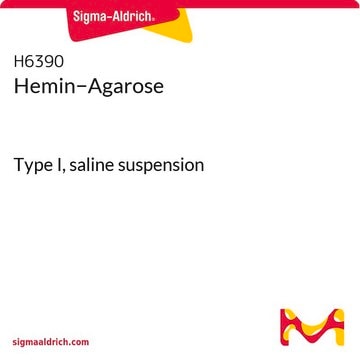U7883
Monoclonal Anti-USP25 antibody produced in mouse
~1.0 mg/mL, clone U25.7, purified immunoglobulin, buffered aqueous solution
Sinónimos:
Anti-USP21, Anti-Ubiquitin specific peptidase 25
About This Item
Productos recomendados
biological source
mouse
conjugate
unconjugated
antibody form
purified immunoglobulin
antibody product type
primary antibodies
clone
U25.7, monoclonal
form
buffered aqueous solution
mol wt
antigen ~126 kDa
species reactivity
rat, mouse, human
concentration
~1.0 mg/mL
technique(s)
immunocytochemistry: suitable
indirect ELISA: suitable
western blot: 1-2 μg/mL using total extract of HEK-293T cells expressing USP25.
isotype
IgG2a
UniProt accession no.
shipped in
dry ice
storage temp.
−20°C
target post-translational modification
unmodified
Gene Information
human ... USP25(29761)
mouse ... Usp25(30940)
rat ... Usp25(304150)
General description
Application
- enzyme linked immunosorbent assay (ELISA)
- immunoblotting
- immunocytochemistry
Biochem/physiol Actions
Physical form
Disclaimer
¿No encuentra el producto adecuado?
Pruebe nuestro Herramienta de selección de productos.
related product
Storage Class
10 - Combustible liquids
wgk_germany
WGK 1
flash_point_f
Not applicable
flash_point_c
Not applicable
ppe
Eyeshields, Gloves, multi-purpose combination respirator cartridge (US)
Certificados de análisis (COA)
Busque Certificados de análisis (COA) introduciendo el número de lote del producto. Los números de lote se encuentran en la etiqueta del producto después de las palabras «Lot» o «Batch»
¿Ya tiene este producto?
Encuentre la documentación para los productos que ha comprado recientemente en la Biblioteca de documentos.
Nuestro equipo de científicos tiene experiencia en todas las áreas de investigación: Ciencias de la vida, Ciencia de los materiales, Síntesis química, Cromatografía, Analítica y muchas otras.
Póngase en contacto con el Servicio técnico







